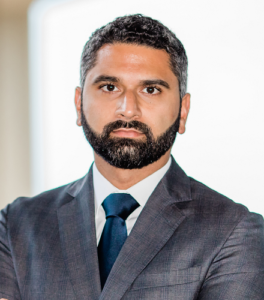Quick search
CTRL+K
Quick search
CTRL+K
posted 1 year ago
Author


There are no results matching your search.
ResetTTA is the elite offshore boutique providing Cayman and BVI legal advice from offices in Grand Cayman, BVI, Hong Kong, London, Australia, and New Zealand. We have a highly experienced team of top quality practitioners who regularly feature in headline-making cases before the Courts of the Cayman and British Virgin Islands. Our partners typically have multiple years’ experience gained in top tier UK, US, and Australian firms and offshore, and are renowned for their pro-active, incisive, and commercial expertise and representation on international contentious matters. Our team are regular speakers at cross-border conferences and often appear as expert witnesses in global proceedings.
Our workflow is broadly general commercial litigation, made up of shareholder or company disputes, contentious trusts, or insolvency. We work regularly with a number of insolvency practitioners in the Cayman Islands and with many of the large international law firms in the UK, USA, and Hong Kong/China.
We have had a very busy past few years and appeared in some of the most prominent cases in the Cayman Islands, in particular:
In re Poulton Family Trust (FSD 121 of 2016), unreported judgment of Kawaley J dated 18 February 2022
• We secured a ruling that a Settlor-Protector’s decisions, (i) to exclude his children from a Cayman Islands Trust and (ii) to request the Trustee to terminate the Trust and appoint the Trust’s assets jointly to him and his third wife, had been procured by his third wife’s undue influence.
In the matter of Aquapoint LP (FSD 157 of 2021), unreported judgment of Doyle J dated 10 June 2022
• We successfully obtained the appointment of liquidators over a Cayman Exempted Limited Partnership following a just and equitable petition by one of the limited partners.
WAFR Holdings Ltd v Michael John Pearson (as Administrator of the Cayman Estate of Osama Abudawood), unreported Court of Appeal judgment dated 13 October 2021
• We obtained clarification on a shareholder’s right to documents of a company in the context of Cayman’s first example of a Judge of the Grand Court appointing an independent third party to act as administrator of a deceased’s intestate Cayman estate under section 26 of the Succession Act.
GIC, GRSIA, and KPA v The Port Fund LP & Port Link GP Ltd (FSD 235 of 2019 and 13 of 2020), unreported judgment of Parker J dated 16 June 2020
• We successfully acted for the limited partner in its efforts to obtain information relating to the Partnership from the General Partner. The claim resulted in a landmark judgment confirming a limited partner’s rights to documents and books and records relating to the Partnership.
Traditional Court litigation remains the most popular method for dispute resolution overall. The Cayman Grand Court has conducted some of most high value litigation in the Cayman Islands and benefits from a reputable and established panel of judges, particularly in the Financial Services division.
Whilst all conventional forms of ADR are available in the Cayman Islands, arbitration is becoming more widely accepted as a successful alternative to litigation for resolving commercial disputes. This is due to a number of factors which include the well-known advantages of ADR (not being limited to confidentiality, comparatively limited discovery and disclosure requirements, reduced costs, time-saving, and the preservation of business relations) and the strong arbitral framework in the Cayman Islands. The Islands have benefited from the recent opening of the Cayman Islands Mediation and Arbitration Centre (CIMAC) and it is hoped (and expected) and there will be an increased use of ADR, particularly for private client disputes where privacy is of greater concern.
Certain matters must be resolved in the FSD, including proceedings relating to Cayman Islands investment funds, most trust proceedings, certain actions under the Companies Act (including all winding-up proceedings), proceedings to enforce foreign judgments and arbitral awards; and most claims for breach of contract or duty by or against a professional services provider. This means that most commercial clients will need to litigate through the Courts, and in particular a high number of our clients originate from Hong Kong and PRC because of their historical use of offshore structures. As the nature of their disputes are often shareholder or company disputes, they require resolution through the Grand Court.
The administration of justice in the Cayman Islands is carried out on three levels: the Summary Court; the Grand Court; and the Court of Appeal. In 2009, in response to the needs of the financial services industry, the Financial Services Division of the Grand Court (the “FSD”) was established. The FSD is modelled on the Business and Property Courts in England and Wales. The FSD has highly experienced judges presiding over complex financial services disputes.
Appeals from the Grand Court lie with the Cayman Islands Court of Appeal, which sits regularly throughout the year. Appeals are heard by three judges, including Lord Justices of Appeal from the English Court of Appeal. In appropriate cases, further appeal may lie with the Judicial Committee of the Privy Council in London. Judgments of the Privy Council are persuasive in many jurisdictions.
The CIMAC was set up in 2022 and is likely to become the pioneer for ADR in the Cayman Islands. They offer facilities to host ADR, provide arbitrators, and have a set of rules that will facilitate arbitral or ADR proceedings.
Aside from the obvious time zone and language difficulties that need to be managed when dealing with cross-border litigation, some of the concepts that arise under common law are not always well understood by certain jurisdictions, particularly where they have a civil legal system. This presents a challenge to ensure that a client fully understands the processes and remedies available to them when looking to resolve a dispute.
Whilst this trend has increased dramatically in the onshore litigation market, it is yet to hit Cayman with the same fervour. There have been some cases which involve sensitive social and political issues but the litigation in this area is in its infancy in Cayman.
Sharing information and expertise allows the legal community to learn from each other, and inevitably certain experts are more proficient in certain areas than others. It is therefore imperative that information, expertise, and thoughts are shared in the community, and in particular the next generation of lawyers, who will only benefit from that interaction.
Recent amendments to the Cayman Islands Companies Act have made significant changes to the previous restructuring framework. Previously, the only way for a company to undergo a restructuring with a moratorium on claims was to put the company into provisional liquidation by issuing a winding up petition. This occasionally posed a problem when the directors of a company wanted to perform a restructuring because, unless specifically authorised in the company’s articles of association, directors of Cayman Islands companies cannot issue a winding up petition themselves. This leaves the directors in a position where they need either a shareholders’ resolution or for a creditor to issue winding up proceedings, both of which can be practically difficult. Even if one of the creditors issues winding up proceedings in cooperation with the directors of a company, there is a risk that another creditor will attempt to substitute themselves as the petitioner in order to take control of the winding up process.
The recent amendments have addressed this issue by allowing the appointment by the court of a company restructuring officer without a requirement for there to be a winding up petition issued against the company. This will allow companies to restructure more easily and with fewer risks. Whilst the process may have some flaws and be open to abuse by nefarious directors, it is expected that there will be an increase in the number of restructurings occurring in the Cayman Islands in the years to come and the facilitation of restructuring of companies is overall a benefit to the jurisdiction.
In 2021, the Private Funding of Legal Services Act came into force which permits third party funding, contingency and conditional fee arrangements. This is also likely to have an impact on the manner in which litigation takes place in Cayman.
More Locations
There are no results matching your search.
ResetMain Guide
posted 2 years ago
Litigation is the final legal process for settling disputes, but its practice is intertwined with alternative forms of dispute resolution…
There are no results matching your search.
Resetposted 2 years ago
Commercial or mercantile law relates to the interactions, rights and conduct of individuals or businesses engaged in trade and commerce…
posted 2 years ago
Real Estate Law encompasses landowners’ transactions and shares common ground with Property Law – and the myriad ways in which land and property are utilised for personal and business endeavours…
posted 2 years ago
Business crime is a broad term that includes a wide scope of nonviolent criminal offences relating to fraud and illegal financial transactions, often achieved by sophisticated means…
posted 2 years ago
Employment Law governs interactions between employers, employees, unions and government regulations – which often require amendments due to societal changes…
posted 2 years ago
The collective framework known as Corporate Law governs the rights, conduct and relations of individuals, companies and organisations doing business…
posted 2 years ago
Litigation is the final legal process for settling disputes, but its practice is intertwined with alternative forms of dispute resolution…
There are no results matching your search.
ResetFind the right Legal Expert for your business
Sign up for the latest legal briefings and news within Global Law Experts’ community, as well as a whole host of features, editorial and conference updates direct to your email inbox.
Naturally you can unsubscribe at any time.
Global Law Experts is dedicated to providing exceptional legal services to clients around the world. With a vast network of highly skilled and experienced lawyers, we are committed to delivering innovative and tailored solutions to meet the diverse needs of our clients in various jurisdictions.